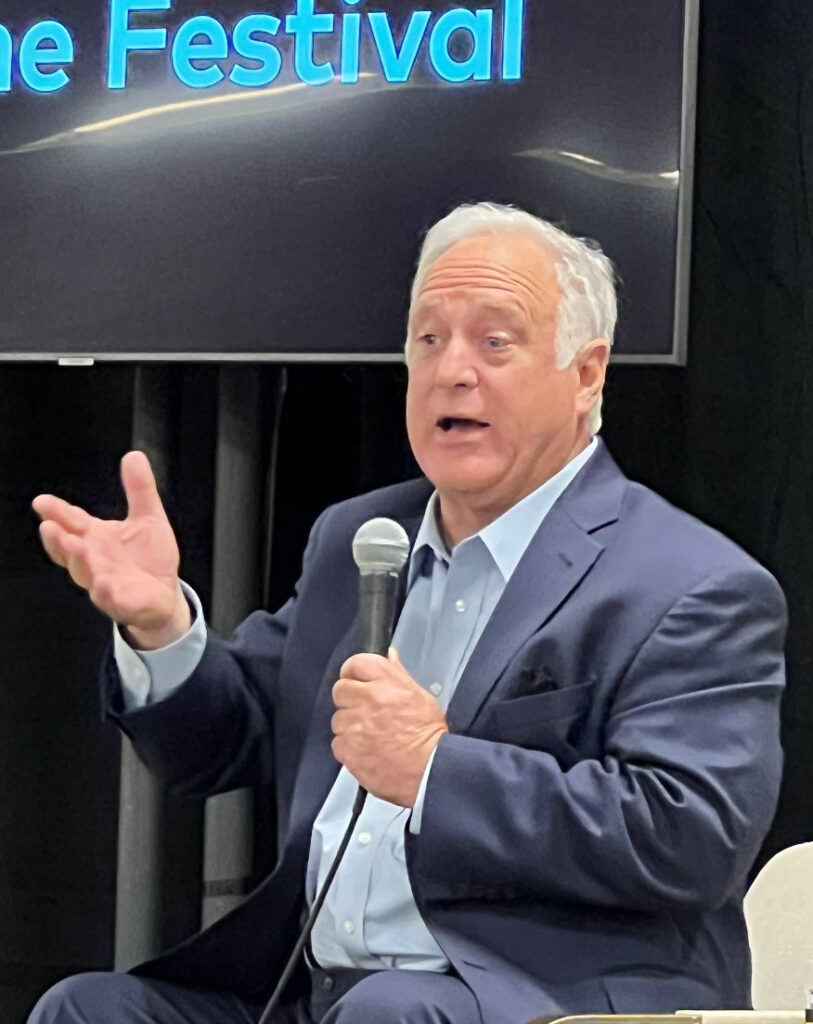During a recent appearance at the Texas Tribune Festival, Austin Mayor Kirk Watson outlined his agenda for the future, and his take on politics.
He pushed back against the recent political decision by the Mayor of Dallas, Eric Johnson, to switch from Democrat to Republican. “As far as I’m concerned Eric can do what he wants to do. He talked in terms of how he thinks cities ought to be governed. I don’t agree with him that that comes down to what political party or what primary you vote in. Part of governing in a city in my view (which is part of the reason I ran again to be Mayor) is my belief that this being the government that is so close to the people – that impacts people’s day-to-day lives in virtually every decision you make – that’s not something that you base upon a party agenda. It’s what best suits that city. An important part of that is that cities are different.”

Watson rightly framed his political stance this way: “If you compare 1997 to 2001, when I was Mayor the first time, with this time: back then Austin was becoming a big international city, and now we are a big international city. In 1997-2001 we created the first affordable housing trust fund, the first smart housing fund, and the first resource centre for the homeless. We did these things because we were growing into that. What happened is in that 20-plus year period some of those issues went to scale,” as he motioned his hand way up to signify the immense growth of the problems. “And so the politics get defined by that, and importantly, how do we keep the place that we all fell in love with and came here to be a part of? I come to the politics more in that way than I do in ‘let’s come up with a political agenda.’ I want us to fix the issues to address the problems we have.”
Unlike when he was mayor the first time, the city council now consists of a mayor elected at large, and 10 single-member districts. “I’m a supporter of single-member districts. One of the reason so many us wanted to be here in Austin was because it embraced different people, different points of view. But the at-large system (for council members) didn’t really allow for that to happen. The single-member districts allow for greater diversity (racially, ethnically, and from points of view) and frankly, it allows us to address issues that might not get addressed in different parts of the city if you didn’t have an advocate.”
“Building a consensus around something takes longer. I think as we grow as a city, and we start having to do redistricting over and over again, we will need to look at different ways that it’s easier to hold the whole council accountable. If the whole council makes decision that the public doesn’t favour, what’s the accountability factor in that? And we are going to need to look at what we do so that the person we ask to set a vision for the entire city has a better ability to balance that against the individual districts.”
Watson outlined his pragmatic approach to city/state politics. “Austin does see things differently than the majority in the State legislature. One of my rules of politics is ‘don’t make unnecessary enemies.’ You will never see me tweet at another elected official because that’s not a good dialogue – that’s a toxic way of trying to do your business. I’m not going to use social media as a toxic weapon. If you look at that latest legislative session, there were about a dozen bills that were existential to Austin Energy and Austin to some degree.”
Luckily Watson was a member of the State Legislature for many years, so he relies on his relationships there to shield the city from these existential threats. “We know each other and our families, and we like each other, so we can talk about policy. We had a relatively good session. Just recently, working with the Governor’s office, the Texas Dept. of Community Affairs gave the city of Austin $65 million to help us address people living homeless. Just the other day we had a press conference at the Hobby building with the Republican Commissioner of the General Land Office where we talked about building workforce housing. So I’m working very hard to make sure that the relationship is a good one because it benefits my constituents. We are the city that is the capital of the State of Texas; I don’t know why that should put us at war with the Capitol of the State of Texas.”
We are indeed fortunate to have such a sensible and far-sighted Mayor of Austin. Sun News Austin offers it full support to Kirk Watson as he helps shape the future of our city.
Photo by C. Cunningham